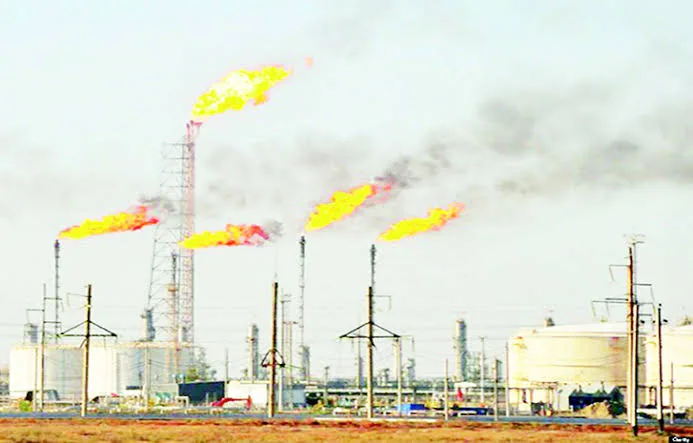The collaboration between the Nigerian National Petroleum Company Limited and TotalEnergies has reached a significant milestone by putting an end to routine gas flaring across all their assets.
The development was disclosed during an inspection of Oil Mining Lease (OML) 100 in the southeastern Niger Delta, located off Port Harcourt. The inspection was conducted by a combined team from NNPC Ltd and TotalEnergies.
Olufemi Soneye, Chief Corporate Communications Officer of NNPC Ltd, announced this in a statement released on Thursday in Abuja. The purpose of the inspection was to verify the effectiveness of the OML Flare Reduction Project, which was launched in December 2023.
According to Soneye, the result is consistent with the goals of lowering greenhouse gas emissions by 20% (unconditional) and 47% (conditional) established in the Nationally Determined Contribution to the Paris Accord signed during President Bola Tinubu’s administration.
The statement reads: “The NNPC Ltd/TotalEnergies Joint Venture, which is the concession holder of four leases, had hitherto achieved zero routine flaring across OML 99 (2006), OML 102 (2014), and OML 58 (2016), leaving OML 100 as the only lease with routine flaring going on.
“The significance of this achievement is that the last routine flare volume of about 12MMscf/d (twelve million standard cubic feet per day) of gas has now been eliminated giving rise to a greenhouse gas emissions reduction of about 341KtCO₂e/yr.
“The achievement is an outcome of a program introduced by the NNPC Ltd. to galvanize action towards achieving the zero routine flare by 2030 across its portfolio of assets.”
Nigeria has been flaring gas since the 1950s due to an inability to use the commodity to create energy. The speaker of the House of Representatives indicated in July 2023 that gas flaring costs Nigeria approximately $2.5 billion per year.
In addition to the monetary expense, gas flaring has a severe impact on the environment and the health of individuals who live near flare sites. According to a World Bank publication, there is a strong link between gas flaring and high rates of respiratory disease, fever, and cough among children in communities with flare sites.
Additional medical research indicates a connection between having hypertension and residing in areas where flare-ups occur.
Since 1984, it has been against the law in Nigeria to flare gas without the express consent of the Minister of Petroleum Resources. Fines have been in place since 1969 to deter gas flaring. Gas flaring currently costs $2 per 1000 standard cubic feet of gas.
Reducing gas flaring has made significant progress. Nigeria cut gas flaring by 30% between 2012 and 2021, according to different research, and by 2 billion cubic meters between 2012 and 2015, according to the World Bank.
